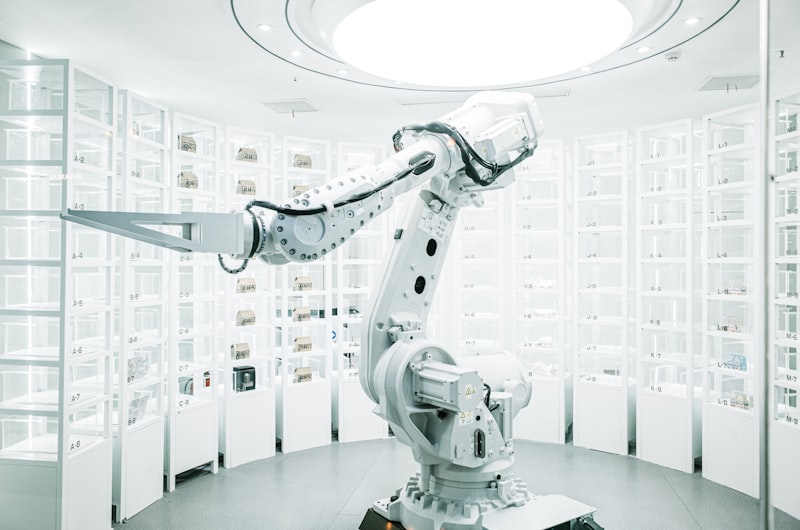What Is the Impact of AI on Child Development and Education?
One of the significant impacts of AI on child development is its ability to provide personalized learning experiences. Traditional education often follows a one-size-fits-all approach, which may not cater to the diverse learning needs of every child. AI algorithms can analyze data from students’ interactions and performance to create personalized learning paths. This ensures that each child receives the support they need to succeed, fostering a more inclusive and effective learning environment.
Moreover, AI-powered educational tools can enhance engagement and motivation among students. Imagine interactive learning platforms that adapt in real-time based on student responses and progress. These tools can make learning more engaging by incorporating gamification elements, virtual reality simulations, and interactive exercises. By making learning enjoyable and relevant, AI helps children stay motivated and curious about exploring new concepts.
Another profound impact of AI on education is its role in developing essential skills for the future workforce. As industries evolve with technology, skills such as critical thinking, problem-solving, and digital literacy become increasingly crucial. AI-driven educational technologies can supplement traditional teaching methods by providing opportunities for hands-on learning and practical application of knowledge. This prepares children for the demands of a rapidly changing job market, ensuring they are equipped with the skills needed to thrive in the digital age.
AI is not just transforming education; it is redefining how children learn, grow, and prepare for the future. By personalizing learning experiences, enhancing engagement, and developing essential skills, AI empowers educators and students alike to achieve greater outcomes. As we continue to integrate AI into educational practices, the potential for innovation and improvement in child development remains limitless.
This article aims to capture the transformative impact of AI on child development and education, highlighting its benefits in a conversational and engaging tone.
Navigating the Future: AI’s Role in Shaping Early Childhood Education
Artificial Intelligence (AI) is no longer just a buzzword; it’s a transformative force shaping various aspects of our lives, including early childhood education. Imagine a classroom where personalized learning experiences are tailored to each child’s unique needs and learning pace. This is the promise that AI holds for the future of education, particularly in the formative years of early childhood.
In practical terms, AI can revolutionize how educators approach teaching and learning. By analyzing vast amounts of data on student performance and behaviors, AI algorithms can identify patterns that human educators might miss. This insight enables teachers to customize lesson plans and educational activities to suit individual learning styles, ensuring that no child is left behind.
Moreover, AI-powered tools can supplement traditional teaching methods by providing interactive and engaging learning experiences. For example, educational apps and games powered by AI can adapt in real-time to a child’s responses, offering challenges that are neither too easy nor too difficult—a concept known as the zone of proximal development.
Critics often raise concerns about the role of AI replacing human teachers. However, the true potential lies in AI acting as a supportive assistant rather than a substitute. AI can handle routine administrative tasks, such as grading and attendance, freeing up educators to focus more on mentoring and fostering emotional intelligence—the skills that are crucial for a child’s holistic development.
As we navigate this new frontier, it’s essential to harness AI’s potential responsibly. Educators and policymakers must collaborate to ensure equitable access to AI technologies and safeguard children’s privacy and data security. By embracing AI as a tool for enhancing rather than replacing human interaction, we can pave the way for a future where every child receives personalized, high-quality education tailored to their needs.
AI’s role in early childhood education is poised to revolutionize learning experiences, making education more personalized, engaging, and effective. By leveraging AI responsibly, educators can empower the next generation with the skills they need to thrive in an increasingly digital and interconnected world.
From ABCs to Algorithms: How AI Is Transforming Learning for Kids


In traditional education, every child follows the same curriculum at the same pace, regardless of their unique strengths and weaknesses. AI changes this by analyzing each student’s learning patterns and tailoring lessons accordingly. For instance, if a child struggles with multiplication but excels in geometry, AI algorithms can identify these areas and provide customized exercises to enhance their understanding.
Moreover, AI-powered learning platforms offer interactive experiences that engage children in ways traditional methods cannot. Picture a math lesson where a virtual tutor guides a student through problem-solving steps or a language app that adjusts its difficulty based on real-time performance. These tools not only make learning more effective but also more enjoyable, fostering a love for learning from an early age.
Beyond personalized learning, AI is also reshaping how educational content is delivered. Imagine textbooks that come alive with interactive diagrams, videos, and quizzes tailored to a child’s progress. This dynamic approach not only captures attention but also reinforces concepts through multiple modalities, accommodating diverse learning styles.
Critically, AI enables educators to track student progress comprehensively. Teachers can access real-time data on each student’s strengths and weaknesses, allowing for timely interventions and personalized feedback. This data-driven approach empowers educators to optimize their teaching strategies and ensure no child is left behind.
Building Blocks of the Future: AI’s Influence on Child Development
One of AI’s most compelling roles in child development lies in personalized learning. Unlike traditional classrooms, AI-powered educational tools can adapt to each child’s pace and style of learning. This adaptability ensures that no child is left behind, fostering a supportive environment where every learner can thrive. By analyzing vast amounts of data on learning patterns, AI can pinpoint areas where a child may need additional support or challenge, thereby optimizing their educational journey.
Moreover, AI enhances accessibility to education. In remote or underserved areas where access to quality education is limited, AI-powered platforms provide a lifeline. These platforms deliver high-quality educational content directly to children’s fingertips, bridging the gap and democratizing access to knowledge.
Beyond academics, AI cultivates critical thinking and problem-solving skills. Through interactive learning experiences such as educational games and simulations, children engage in hands-on activities that encourage experimentation and creativity. AI algorithms can generate scenarios where children tackle real-world problems, stimulating their cognitive abilities and preparing them for challenges they may face in adulthood.
Furthermore, AI assists in early identification of developmental issues. Machine learning algorithms can analyze behavioral patterns and detect potential learning disabilities or social-emotional challenges early on. This proactive approach enables timely intervention and support, ensuring that children receive the assistance they need to reach their full potential.
Unlocking Potential: The Educational Benefits of AI for Young Minds
Imagine a classroom where every student receives tailored lessons that cater to their unique learning styles and pace. AI makes this possible by analyzing vast amounts of data to understand each student’s strengths and weaknesses. Through adaptive learning algorithms, it can adjust the curriculum in real-time, ensuring that every student gets the support they need to succeed.
But AI’s impact goes beyond individualized learning. It’s also reshaping how educators approach teaching. With AI-powered tools like smart tutors and virtual classrooms, teachers can enhance their lessons with interactive simulations and immersive experiences. This not only makes learning more engaging but also helps students grasp complex concepts with ease.
Moreover, AI acts as a facilitator for collaborative learning. Through platforms that support virtual group projects and peer-to-peer tutoring, students can develop crucial teamwork and communication skills in a digital environment. This prepares them for the collaborative nature of the modern workforce.
Furthermore, AI fosters inclusivity by breaking down barriers to education. For students with disabilities, AI-powered assistive technologies provide tailored support, enabling them to participate fully in classroom activities and achieve academic success.
In essence, AI is unlocking the potential of education by making learning more personalized, engaging, and accessible than ever before. As we embrace these technological advancements, we pave the way for a future where every young mind can thrive and reach their full potential. The educational landscape is evolving, and AI is at the forefront, reshaping how we teach, learn, and grow together.

